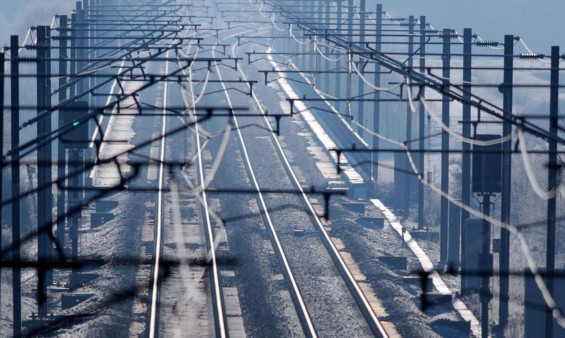The East Coast main line is expected to be back in private hands in less than two years under rail franchise plans announced by the Government today.
The line a key Scotland to London route has been run under the control of the Department for Transport since November 2009 after transport company National Express pulled out.
Today, Transport Secretary Patrick McLoughlin announced the start of a bidding competition for the East Coast franchise with an expected start of service by the new operator in February 2015.
He also published a detailed timetable for all rail franchise arrangements over the next eight years, following a major review after the West Coast bidding process had to be abandoned last year.
Mr McLoughlin said: “This programme is a major step in delivering tangible improvements to services, providing long-term certainty to the market and supporting our huge programme of rail investment.
“Above all, in future franchise competitions we are placing passengers in the driving seat by ensuring that their views and satisfaction levels are taken into account when deciding which companies run our railway services.
“Franchising has been a force for good in the story of Britain’s railways, transforming an industry that was in decline into one that today carries record numbers of passengers.”
Rail unions reacted with dismay to the East Coast news, pointing out that the private sector had twice given up the franchise, with GNER pulling out some years ago.
They also highlighted the fact that the taxpayer is likely to have to foot a bill as high as £50 million over the botched West Coast franchise.
RMT general secretary Bob Crow said: “Despite wasting hundreds of millions of pounds of taxpayers’ money on the franchising circus, and instead of learning the lessons of the privatisation disasters on the East and West Coast main lines and across the rest of the network, the Government has this morning given the green light to a whole new wave of profiteering that will have the train companies laughing all the way to the bank.
“The proposed reprivatisation of the East Coast, after the public sector rescued the service following two private failures, proves conclusively that the political class have learnt absolutely nothing when it comes to our railways.
“This is a politically-inspired wrecking move designed to flog off this publicly-owned intercity route before the next election regardless of the consequences.”
He went on: “With this news coming just a day before the 50th anniversary of the Beeching Report that ripped Britain’s railways to pieces, the ConDem administration is setting up yet another sell-off of state assets in a further act of grotesque rail vandalism.
“The public need to know that, while fares are going up and safety is being compromised, the Government’s priority remains the profits of the greedy train operating companies. No wonder 70% of the people now support RMT’s call for full renationalisation.”
Manuel Cortes, leader of the TSSA rail union, said: “The Tories are just like the Bourbons when it comes to rail they ignore all the lessons of history. The £50 million West Coast line fiasco revealed that private franchises are a shambles. So they go and privatise the only successful publicly-owned franchise, the East Coast line.
“This is an act of political spite to reward their friends in the City and to tie the hands of an incoming Labour government in 2015. The most expensive rail network in Europe is about to get even more expensive.”
